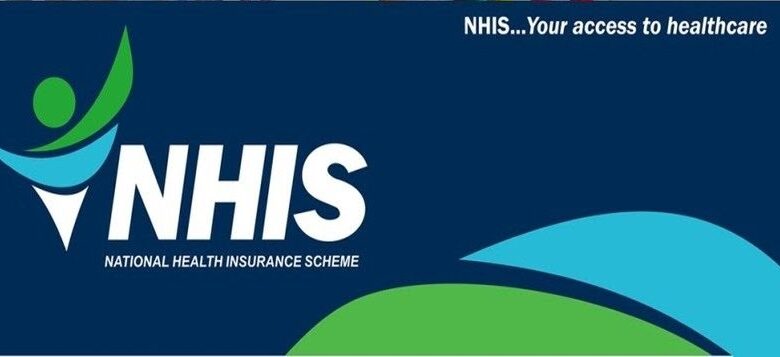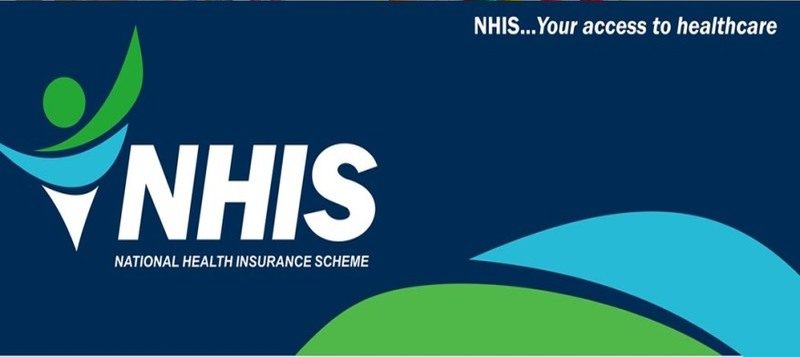How Health Insurance Can Save You Money on Medical Bills in Ghana

Secure Your Health, Save Your Money: A Guide to Choosing the Right Health Insurance in Ghana

Health insurance in Ghana offers valuable financial protection, allowing residents to access essential healthcare services without the burden of overwhelming costs. As healthcare expenses continue to rise globally, having a robust health insurance plan is increasingly vital to avoid unexpected medical bills.
In this guide, we’ll explore the best health insurance options available in Ghana, discuss the benefits of medical insurance, and provide a step-by-step guide on how to sign up.
We’ll also delve into private healthcare options and how they complement public health insurance plans. Whether you’re focused on family health, fitness, or simply ensuring access to quality health services, this article will help you make informed decisions about health insurance in Ghana.
Best Health Insurance in Ghana
Choosing the right health insurance plan is essential for safeguarding your health and finances. In Ghana, both public and private health insurance options are available, catering to different needs and budgets.
National Health Insurance Scheme (NHIS):
The NHIS, launched in 2003, is Ghana’s primary public health insurance option. It offers affordable access to basic healthcare services, covering outpatient and inpatient treatments, maternity services, and emergency care.
However, there are certain limitations to NHIS coverage, such as high-cost treatments for cancer and some surgical procedures. For many Ghanaians, the NHIS provides a foundational layer of healthcare support, particularly useful for common ailments and routine health services.
Top Private Health Insurance Providers in Ghana:
-
Premier Health Insurance – Known for its comprehensive plans, Premier Health Insurance caters to both individuals and corporate clients, offering a wide range of coverage options. Premier’s flexible plans make it an attractive choice for those seeking extensive healthcare coverage and specialized services.
-
Acacia Health Insurance – Acacia is a leading provider in Ghana, recognized for its competitive packages and quick response times. Their coverage includes outpatient care, maternity services, and other health benefits ideal for families and individuals focused on holistic wellness.
-
GLICO Healthcare – With a reputation for reliable service, GLICO offers robust plans covering both inpatient and outpatient services. Its extensive network of service providers across Ghana ensures accessible and timely care.
These private insurers allow for more flexible options tailored to unique healthcare needs. They often include additional services not covered by NHIS, such as specialized medical consultations and quicker access to elective procedures.
Medical Insurance in Ghana
Medical insurance in Ghana, encompassing both public and private schemes, plays a critical role in providing financial relief from high healthcare expenses. While NHIS operates on a contributory basis with premiums based on income levels, private insurance plans require a monthly premium and offer added benefits, such as access to specialists and shorter wait times.
Key Benefits of Medical Insurance Plans in Ghana:
- Inpatient Services: Covering hospital stays, surgeries, and related treatments.
- Outpatient Services: Providing coverage for consultations, diagnostics, and minor procedures.
- Maternity Care: Encompasses prenatal and postnatal services, ensuring comprehensive care for mothers and newborns.
- Emergency Services: Ensures coverage for urgent care situations requiring immediate medical attention.
Pro Tip: When selecting a medical insurance plan in Ghana, consider your healthcare priorities, such as chronic illness management, fitness support, or preventive services. For instance, those keen on fitness may benefit from plans that offer wellness checks, physiotherapy, or coverage for routine health screenings.
Health Insurance Plans: What to Look For
Selecting the right health insurance plan requires a careful assessment of your healthcare needs, financial capacity, and available options. Here are some essential factors to consider when choosing health insurance in Ghana:
-
Coverage Options – Review the range of services included, particularly if you have specific healthcare needs. For instance, if fitness and wellness are your focus, look for plans that offer regular health screenings and exercise-related injury care.
-
Premium Costs – Ensure that the premium is affordable within your budget. NHIS offers a lower-cost public option, while private insurance plans come with monthly premiums that may vary significantly based on the extent of coverage.
-
Network of Providers – Check if your preferred hospitals, clinics, and specialists are included in the insurance provider’s network. This will ensure you can access the facilities you trust.
-
Claim Process – Learn about the claims procedure for each plan. A straightforward claim process will make it easier to receive reimbursements or direct billing for services without hassle.
Popular Health Insurance Plans Comparison Table:
| Provider | Coverage Type | Key Benefits |
|---|---|---|
| NHIS | Public | Affordable basic healthcare; exemptions for vulnerable groups |
| Premier Health Insurance | Private | Comprehensive coverage with a mobile app for claims |
| Acacia Health Insurance | Private | Competitive packages with quick service |
| GLICO Healthcare | Private | Extensive provider network and reliable service |
These comparisons can serve as a quick reference for those exploring options to find the best fit for their healthcare and fitness needs.
Private Healthcare in Ghana
While public healthcare is widely available in Ghana, private healthcare offers additional benefits for those willing to invest in more personalized services. Private healthcare facilities are often preferred due to shorter wait times and more focused patient care. However, these services tend to be pricier, making health insurance an essential tool for reducing costs.
Benefits of Private Healthcare:
- Faster Access: Private healthcare facilities generally have shorter wait times, allowing you to receive timely treatment.
- Quality of Care: Many private hospitals are equipped with state-of-the-art facilities and highly trained specialists.
- Personalized Services: With fewer patients per doctor, private facilities often provide more attention to each patient, enhancing the quality of care.
Tip for Fitness Enthusiasts: If fitness and wellness are integral to your lifestyle, private health insurance can give you access to sports medicine and physiotherapy services, which may not be fully covered under NHIS.
How to Sign Up for Health Insurance in Ghana

Signing up for health insurance in Ghana can seem complex, but the process is fairly straightforward once you understand the steps:
-
Determine Eligibility: Based on your income level and health needs, decide whether you qualify for NHIS or would benefit more from private insurance. NHIS provides exemptions for certain groups, like seniors over 70 and children under 18.
-
Choose a Plan: Research different plans from both public and private insurers. Evaluate based on coverage, affordability, and provider network to ensure the plan fits your healthcare and fitness goals.
-
Gather Required Documents:
- For NHIS: A valid ID (like a Ghana Card), passport-sized photos, and proof of residence.
- For Private Insurance: Identification documents and any additional information requested by the insurer.
-
Complete Application Forms: Complete your application online or visit a local NHIS office or a private insurance provider’s branch.
-
Pay Premiums: For NHIS, premiums are income-based, while private insurance involves regular monthly payments. Ensure timely premium payments to avoid a lapse in coverage.
-
Receive Your Card/Policy Document: Once processed, you’ll receive an NHIS card or a policy document from your private insurer, officially granting you access to healthcare services under the plan.
Bonus Tip: For those interested in preventive care and fitness, inquire if your plan covers wellness programs, fitness classes, or access to gym facilities. Some private health insurance providers offer discounts on health and fitness services as part of their wellness incentives.
Conclusion
Health insurance in Ghana is more than just a safety net—it’s a vital tool for managing healthcare costs, ensuring access to essential health services, and promoting long-term well-being.
By comparing options like NHIS and private health insurance providers such as Premier Health Insurance, Acacia Health Insurance, and GLICO Healthcare, Ghanaians can choose plans that align with their health, fitness, and financial needs. With the right insurance, you’re not only investing in your immediate health but also securing your future.
Whether you’re focused on maintaining fitness, accessing specialized health services, or safeguarding against high medical bills, health insurance in Ghana provides the flexibility and support necessary to lead a healthy life with confidence.
FAQ Section:
1. How much is health insurance in Ghana?
The cost of health insurance in Ghana depends on the type of coverage you choose. For the National Health Insurance Scheme (NHIS), premiums are relatively affordable and based on income groups. Typically, NHIS premiums range from as low as GHS 30 to GHS 180 annually, depending on the subscriber’s income and age.
Private health insurance plans generally have higher premiums, with costs varying based on the level of coverage and benefits provided. Premiums for private plans can range from GHS 100 to GHS 1,000 or more annually, depending on the provider and the chosen package.
2. How to check Ghana National Health Insurance?
To check your Ghana National Health Insurance status, you can use the NHIS website or the mobile app. You’ll need to log in using your NHIS card number or the unique identification number linked to your registration.
You can also visit any NHIS district office to verify your registration or check the validity of your NHIS membership. Additionally, healthcare providers can check your membership status on their system when you visit their facilities.
3. How to register for Ghana Health Insurance?
Registering for Ghana Health Insurance (NHIS) is a straightforward process. To register, follow these steps:
- Visit an NHIS office in your area or register online via the official NHIS website.
- Submit required documents such as a valid ID (Ghana Card, passport, or birth certificate for minors), passport-sized photos, and proof of residence.
- Complete the registration form and pay the required premium based on your income group or status.
- Receive your NHIS card, which you can use to access healthcare services under the scheme.
Alternatively, registration is available at authorized agents, mobile registration centers, and district offices across the country.
4. How many types of health insurance are there in Ghana?
In Ghana, there are two main types of health insurance:
- National Health Insurance Scheme (NHIS): A public health insurance scheme that covers basic health services for all Ghanaian citizens and legal residents. It includes coverage for outpatient and inpatient care, maternal services, and some emergency services.
- Private Health Insurance: Offered by private companies such as Premier Health, Acacia Health, and GLICO Healthcare, these plans provide more comprehensive and flexible coverage. Private health insurance plans often cover a wider range of treatments, including elective surgeries and specialist consultations, which may not be fully covered by NHIS.
https://lh3.googleusercontent.com/blogger_img_proxy/AEn0k_v0i4eIRvt6DSky7hMZp9fI22vyx2wVwfYwjFcS8_Dw9540NnJvTmHQIzYzdRaA4qcZLRtc7KkGoeD41ggJKn4tQMSfG1co5A5ESfMf09dQU9tBLb9P7IfNLTZQddl0ViJZnnI2ITQaCCduNXIx2TfTGaI=w1200-h630-p-k-no-nu
2024-11-14 15:59:00



